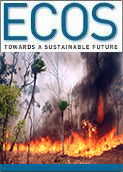
|
Published: 27 October 2014
‘Phantom’ household cars save money and emissions
While the OECD has called for governments to develop policies that don’t specifically advantage car use a new neighbour-to-neighbour car sharing network in Australia has committed to offsetting customers’ carbon emissions – in addition to preventing embodied and other emissions associated with car purchase and ownership.

|
|
The car-sharing service, Car Next Door, provides a low-emissions alternative to car ownership. Credit: ©istock/sankai
|
Car Next Door, a car ‘matchmaking’ service that connects people who have a car with people who need to borrow one, has announced it will offset the kilometres driven by customers through purchasing native forest plantation offsets from Greenfleet.
Car sharing networks are emerging as an effective way to unlock the ‘idling capacity’ in existing motor vehicles, while also reducing carbon emissions.
‘We established Car Next Door to reduce the amount of carbon going into the atmosphere,’ says Will Davies, Car Next Door’s CEO.
‘Sharing existing cars reduces the number of automobiles needed to be manufactured – and we know the embodied emissions created during the manufacturing process typically match or even exceed exhaust pipe emissions over a car’s lifetime.
‘Research also tells us that car sharing encourages both borrowers and lenders to use cars less often, as they are more aware of the cost of driving.’
According to Wayne Wescott, Greenfleet’s CEO, there is a ‘strong alignment of values between Greenfleet and Car Next Door, with both companies providing a practical solution that empowers people to take action on climate change’.
‘Greenfleet’s forests are permanent and self-sustaining, so Car Next Door customers can drive knowing they are contributing to forests that will be standing in 100 years and leave a legacy for future generations,’ he adds.
Source: Greenfleet/Car Next Door



